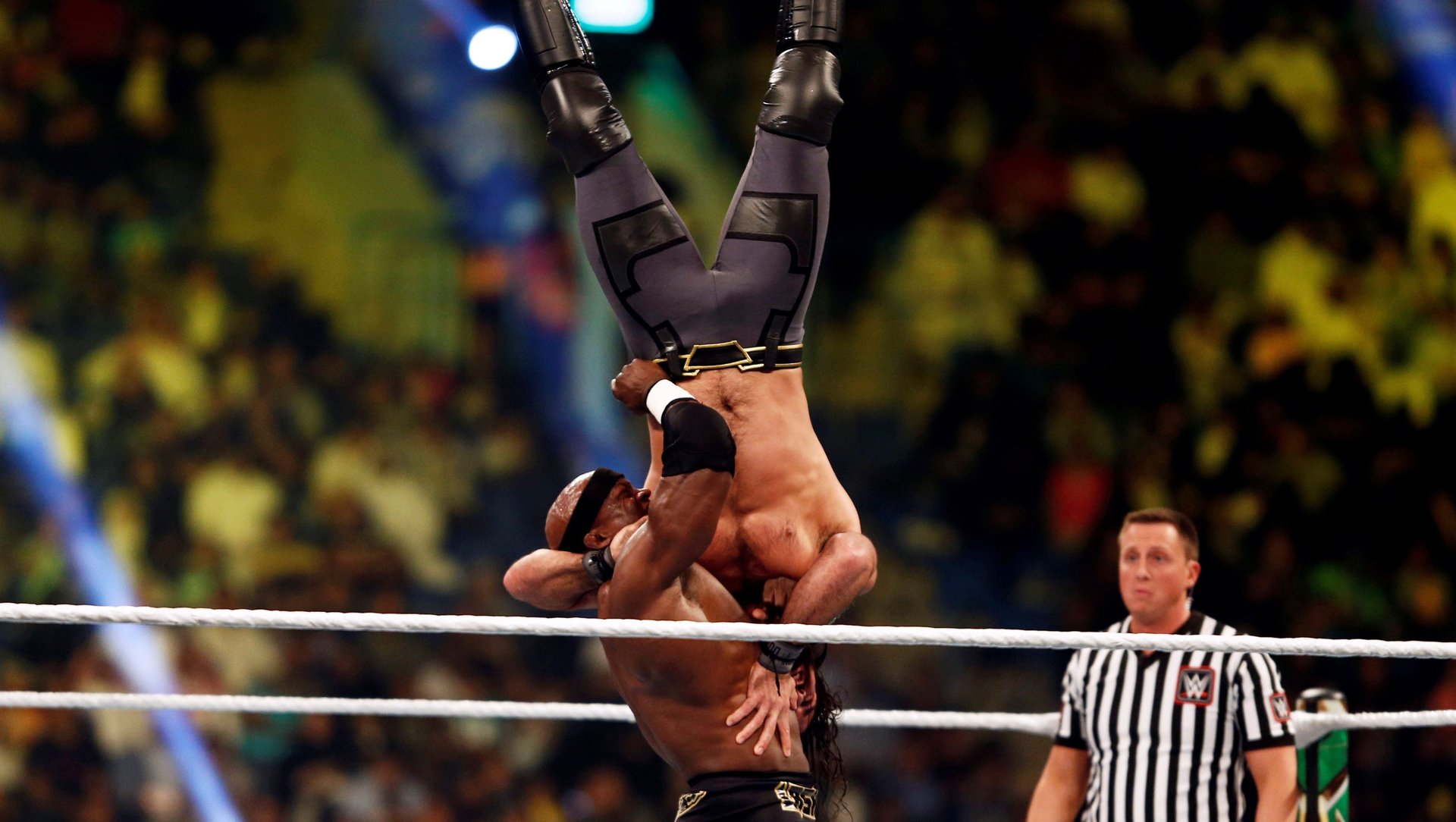John Oliver explains the WWE’s glaring workers’ rights problem
It defies reason that performers who literally light themselves on fire, dive off steel cages, and plow through wooden tables solely for viewers’ entertainment would not get health insurance. But that has been the reality of the WWE for decades.


It defies reason that performers who literally light themselves on fire, dive off steel cages, and plow through wooden tables solely for viewers’ entertainment would not get health insurance. But that has been the reality of the WWE for decades.
John Oliver devoted the March 31 episode of his HBO show, Last Week Tonight, to call attention to the archaic business practices of World Wrestling Entertainment, which essentially absolves itself of responsibility for its wrestlers’ welfare. As Oliver explains, wrestlers in the WWE are technically “independent contractors” who are exempt from US workplace safety and discrimination laws. They don’t get paid annual leave, pensions, worker’s compensation insurance, or basic employee-sponsored health coverage. Dozens of former wrestlers have died before the age of 65, many of them from suicide and drug overdoses.
Oliver argues that compared with the NFL, which has had its own worker-related controversies, the WWE is positively medieval. “When you’ve lost the moral high ground to the fucking NFL, you are morally subterranean,” he says.
WWE is one of the biggest sports brands in the world. It raked in more than $930 million in revenue last year with the help of two cable TV series (Raw and SmackDown), a subscription streaming service, reality TV shows, video games, its own movie studio, and pay-per-view events. The company has more than 1 billion followers across its social media channels. Its stock tripled last year, while CEO Vince McMahon is himself worth $3.3 billion, according to Forbes.
“While the WWE has made [McMahon] a billionaire,” Oliver says, “many wrestlers say he’s treated them terribly.”
In a statement to Quartz, the company had this to say about Oliver’s criticism:
John Oliver is clearly a clever and humorous entertainer, however the subject matter covered in his WWE segment is no laughing matter. Prior to airing, WWE responded to his producers refuting every point in his one-sided presentation. John Oliver simply ignored the facts.
The health and wellness of our performers is the single most important aspect of our business, and we have a comprehensive, longstanding Talent Wellness program.
We invite John Oliver to attend WrestleMania this Sunday to learn more about our company.
McMahon bought the company from his father in 1982, and under him it has either taken over or eliminated all other major competition on its way to becoming a global mega-corporation. While it may have made sense decades ago—before the WWE monopolized the industry—to treat pro wrestlers as independent contractors, that system no longer works now that the performers are exclusive to one company. Despite IRS laws that state independent contractors must be able to decide when and for whom they work, WWE wrestlers are contractually obligated to McMahon’s company while receiving none of the benefits a real employee would actually have.
Oliver cited one wrestler’s contract that absolved the WWE of responsibility even if the wrestler suffered permanent injury or death due to the company’s own negligence.
While other professional sports leagues have off-seasons for athletes to rest their bodies, WWE performers work most of the year, sometimes even through serious injury lest they lose their spots in the lineup. Other leagues have unions to vouch for their players’ rights; pro wrestlers have no such advocates, and previous unionization efforts have been squashed by McMahon.
Little of the information Oliver is offering will be new to fans of the WWE. But as popular as the sport is, its community still tends to be insulated, with wrestling issues only rarely discussed on a wider stage. The US government has shown no interest to date in policing the company’s practices (McMahon’s wife, Linda, briefly served in US president Donald Trump’s cabinet) and the most recent private lawsuit against the WWE was thrown out by the courts over expired statutes of limitations.
Oliver notes that the WWE has taken a few steps to prioritize the safety of its wrestlers, including banning hits to the head and implementing a concussion protocol. But he also argues that many of these steps, like the fact that wrestlers now get annual physical examinations, are underwhelming. “I have to take one of those every year to host this show and I’ve never once exploded through this table,” he said.